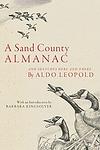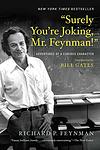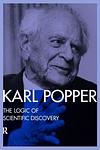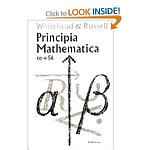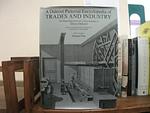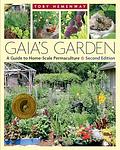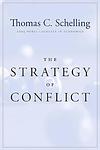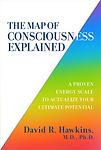The Greatest "Nonfiction, Science" Books of All Time
Click to learn how this list is calculated.
This list represents a comprehensive and trusted collection of the greatest books. Developed through a specialized algorithm, it brings together 305 'best of' book lists to form a definitive guide to the world's most acclaimed books. For those interested in how these books are chosen, additional details can be found on the rankings page.
Genres
The category of "Science" in books encompasses a wide range of topics related to the natural world, including physics, chemistry, biology, astronomy, and more. These books may explore scientific theories, discoveries, and advancements, as well as the history and philosophy of science. They may also cover practical applications of science, such as technology and medicine. Overall, the Science category offers readers a deeper understanding of the world around them and the scientific principles that govern it.
Countries
Date Range
Reading Statistics
Click the button below to see how many of these books you've read!
Download
If you're interested in downloading this list as a CSV file for use in a spreadsheet application, you can easily do so by clicking the button below. Please note that to ensure a manageable file size and faster download, the CSV will include details for only the first 500 books.
Download-
26. A Sand County Almanac by Aldo Leopold
This book is a compilation of nature-related essays that highlight the author's experiences and observations as a conservationist. The author provides a thoughtful and eloquent reflection on the relationship between land and people, emphasizing the importance of conservation and sustainability. Through his writings, he advocates for a 'land ethic' where humans view themselves as part of the natural community rather than conquerors of it, promoting a harmonious coexistence with nature.
The 1342nd Greatest Book of All Time -
27. "Surely You're Joking, Mr. Feynman!": Adventures of a Curious Character by Richard P. Feynman
The book is an autobiography of a Nobel Prize-winning physicist, filled with humorous and insightful anecdotes from his life. It highlights his adventures from his early years, working on the Manhattan Project, to his teaching years at Caltech. The book showcases his unconventional thought process, his insatiable curiosity, and his passion for science, painting a vivid picture of a man who never stopped questioning and learning.
The 1383rd Greatest Book of All Time -
28. The Problems of Philosophy by Bertrand Russell
This book is an introduction to the central issues of philosophy, discussing topics such as reality, existence, knowledge, freedom, and ethics. It seeks to promote critical thinking and skepticism, encouraging readers to question their own beliefs and the world around them. The author uses clear and accessible language to explain complex philosophical concepts, making it an ideal starting point for those new to philosophy.
The 1448th Greatest Book of All Time -
29. The Immortal Life of Henrietta Lacks by Rebecca Skloot
The book tells the story of Henrietta Lacks, a poor African American tobacco farmer whose cells, taken without her knowledge in 1951, became one of the most important tools in medicine, vital for developing the polio vaccine, cloning, gene mapping, and more. Henrietta's cells have been bought and sold by the billions, yet she remains virtually unknown, and her family can't afford health insurance. The book explores the collision between ethics, race, and medicine; of scientific discovery and faith healing; and of a daughter consumed with questions about the mother she never knew.
The 1456th Greatest Book of All Time -
30. On the Revolutions of the Heavenly Spheres by Nicolaus Copernicus
This book presents the revolutionary astronomical model that places the sun, rather than the earth, at the center of the universe. The author challenges the geocentric model of the cosmos, which had been widely accepted since the time of Aristotle, and instead proposes a heliocentric system, where the planets orbit the sun. This revolutionary idea transformed the way we understand our place in the universe, paving the way for modern astronomy and science.
The 1520th Greatest Book of All Time -
31. The Logic of Scientific Discovery by Karl Popper
This book is a significant work in the philosophy of science, proposing a methodology for scientific discovery that challenges traditional inductive reasoning. The author argues that scientific theories can never be proven definitively, but can only be corroborated or falsified through empirical testing. He introduces the concept of falsifiability as the key criterion for distinguishing scientific theories from non-scientific ones. The book also delves into the problems of induction, demarcation, and the relationship between theory and observation in scientific practice.
The 1525th Greatest Book of All Time -
32. The Natural History and Antiquities of Selborne by Gilbert White
"The Natural History and Antiquities of Selborne" is an exploration of the natural world in the English village of Selborne. The author, through a series of letters, provides detailed observations and insights into the flora, fauna, weather and geology of the area. The book also sheds light on the history and antiquities of the village, offering a comprehensive view of Selborne during the 18th century.
The 1562nd Greatest Book of All Time -
33. The Principia Mathematica by Alfred North Whitehead, Bertrand Russell
The Principia Mathematica is a three-volume work on the foundations of mathematics, written with the goal of deriving all mathematical truths from a well-defined set of axioms and inference rules in symbolic logic. The authors aim to show that mathematics is a development of logic and avoid any hidden assumptions. The work covers topics like class theory, relation theory, and quantity theory, and it is known for its rigorous and meticulous approach.
The 1723rd Greatest Book of All Time -
34. On Growth and Form by D'Arcy Wentworth Thompson
"On Growth and Form" is a landmark work that explores the science of biology from a mathematical perspective, emphasizing the patterns and geometry found in living organisms. The book discusses how physical and mathematical laws influence the way that organisms grow and develop, and how different species exhibit similar patterns of growth. It also touches on how these principles apply to the structure of the universe and the patterns found in nature. This work is considered a foundational text in the field of mathematical biology.
The 1758th Greatest Book of All Time -
35. The Sixth Extinction: An Unnatural History by Elizabeth Kolbert
The book explores the concept of the sixth extinction, suggesting that we are currently in the midst of it due to human activity. By examining previous mass extinctions and the current rapid loss of species, the author argues that humans are causing a mass extinction event through climate change, habitat destruction, and spreading of non-native species. The book offers a sobering look at the impact of human behavior on the natural world, emphasizing the urgency of addressing these environmental issues.
The 1773rd Greatest Book of All Time -
36. Encyclopédie by Denis Diderot
This comprehensive work is a pioneering encyclopedia that aimed to present all the world's knowledge in a systematic and accessible way. It covers a wide range of topics including arts, sciences, crafts, professions, and technology. The book is also notable for its radical and enlightenment ideas, challenging traditional institutions and advocating for freedom of thought. It played a significant role in shaping the intellectual landscape of the 18th century and beyond.
The 1814th Greatest Book of All Time -
37. On Aggression by Konrad Lorenz
"On Aggression" is a scientific study that explores the concept of aggression in both animals and humans from an ethological (study of animal behavior) perspective. The author argues that aggression is an innate and necessary instinct that has helped species survive and evolve. However, he also emphasizes that this instinct, when unchecked or misdirected, can lead to destructive behavior and violence. The book provides a comprehensive analysis of the biological roots of aggression, its role in the evolution and survival of species, and its implications for human society.
The 1814th Greatest Book of All Time -
38. The Lives of a Cell by Lewis Thomas
This book is a collection of 29 essays that explore the world of science and biology, providing insights into the interconnectedness of life on Earth. The author uses metaphors and analogies to explain complex scientific concepts, such as the similarities between Earth and a single cell. The essays cover a wide range of topics, including the behavior of bacteria, the possibility of life on other planets, and the role of language in human evolution. The book emphasizes the importance of understanding and respecting the complexity and beauty of life.
The 1824th Greatest Book of All Time -
39. Gaia by James Lovelock
The book presents a groundbreaking hypothesis that redefines Earth as a self-regulating system, where the biosphere, atmosphere, oceans, and soil function as a single living organism. This entity, named after the Greek goddess of Earth, maintains the conditions necessary for life through complex interactions among its components. The author, an independent scientist, argues that life on Earth actively shapes the environment for its own survival, challenging traditional views of the relationship between organisms and their habitat. The work has sparked widespread debate and research, influencing fields from biology to environmental science, and has profound implications for our understanding of life on Earth and how we approach environmental stewardship.
The 1888th Greatest Book of All Time -
40. Journals by Meriwether Lewis, William Clark
This book is a compilation of the detailed journals kept by two explorers during their expedition across the American West, from 1804 to 1806. The journals provide a first-hand account of their encounters with Native American tribes, their observations of new plant and animal species, and the challenges they faced while traversing uncharted territories. The explorers' writings not only offer insights into their historic journey but also serve as a valuable resource for understanding early 19th-century American history and the country's westward expansion.
The 1889th Greatest Book of All Time -
41. Arctic Dreams by Barry Lopez
"Arctic Dreams" is a comprehensive exploration of the Arctic region, its landscapes, wildlife, and indigenous cultures. The author combines his personal experiences from his time spent in the Arctic with historical, scientific, and anthropological insights, providing readers with a profound understanding of this remote and often misunderstood region. The book also discusses the impact of climate change on the Arctic and its implications for the rest of the world.
The 1940th Greatest Book of All Time -
42. Microbe Hunters by Paul de Kruif
"Microbe Hunters" is a classic work of scientific literature that chronicles the pioneering work of early microbiologists. The book brings to life the groundbreaking discoveries of scientists who dedicated their lives to understanding the invisible world of microbes. These pioneers include figures like Louis Pasteur and Robert Koch, who made significant strides in the field of bacteriology. The book is a blend of scientific facts, biographical sketches, and the author's own infectious enthusiasm for the subject matter, making it an engaging read for both scientists and lay readers alike.
The 1977th Greatest Book of All Time -
43. The Strategy Of Conflict by Thomas Schelling
The book in question is a seminal work in game theory and strategic thinking, exploring how individuals and organizations can achieve their goals in situations of competition and conflict. The author delves into the paradoxes of strategic behavior, emphasizing the importance of credible commitments, communication, bargaining tactics, and the role of brinkmanship. By examining a wide range of examples, from everyday life to international crises, the book provides insights into the nature of conflict and cooperation, offering a framework for understanding the strategic actions that can lead to mutually beneficial outcomes or escalate to destructive confrontations.
The 2006th Greatest Book of All Time -
44. What Is Life? by Erwin Schrödinger
"What is Life?" is a scientific exploration that delves into the intersection of physics and biology. The book presents the idea that life, at its most basic level, operates according to the laws of physics and chemistry. It introduces the concept of an "aperiodic crystal" that contains genetic information in its configuration of covalent chemical bonds, which later inspired the discovery of the structure of DNA. The book also discusses entropy and negentropy, suggesting that life feeds on negentropy to counteract the natural process of increasing entropy.
The 2031st Greatest Book of All Time -
45. King Solomon's Ring by Konrad Lorenz
This book is a fascinating exploration of animal behavior by a renowned zoologist. It delves into the author's personal experiences and observations of animals in their natural habitats, focusing particularly on birds, dogs, and jackdaws. The author uses these observations to draw conclusions about animal psychology and behavior, often comparing it to human behavior. The book is named after the biblical King Solomon, who was said to have a ring that allowed him to understand the language of animals.
The 2046th Greatest Book of All Time -
46. Novum Organum by Francis Bacon
This book is a philosophical work that presents a new method of acquiring knowledge and understanding the natural world, rejecting the traditional methods of the time. The author argues that human understanding is hindered by certain 'idols' or false notions, and proposes an inductive, experimental method, known as the 'Baconian method', which involves gathering data, making observations, and conducting experiments to understand the world. This method is seen as a precursor to the modern scientific method.
The 2080th Greatest Book of All Time -
47. Consciousness Explained by Daniel Dennett
The book in question offers a comprehensive theory of consciousness, challenging traditional views and proposing a scientific understanding of the mind. The author argues against the Cartesian model of consciousness as a central, unified entity and instead presents the "Multiple Drafts" model, which posits that consciousness arises from various cognitive processes occurring in parallel. The work delves into the nature of perception, memory, and language, employing insights from psychology, neuroscience, and artificial intelligence to explain how complex phenomena such as self-awareness and intentionality can emerge from the interactions of non-conscious brain functions. The book is both a critique of outdated philosophical ideas about the mind and an attempt to clarify how consciousness can be studied and understood through empirical means.
The 2195th Greatest Book of All Time -
48. Coming of Age in the Milky Way by Timothy Ferris
This book provides a comprehensive history of cosmology, from the ancient Greeks to modern astrophysicists. It explores the evolution of scientific thought and discoveries that have shaped our understanding of the universe. The narrative chronicles the shift from geocentric to heliocentric models, the development of quantum mechanics, and the advent of theories such as relativity and string theory. The book also discusses the philosophical and cultural implications of these scientific advancements.
The 2260th Greatest Book of All Time -
49. Sapiens: A Brief History of Humankind by Yuval Noah Harari
This book provides a comprehensive exploration of the history of the human species, tracing back from the earliest forms of Homo Sapiens to the modern day. It delves into evolutionary biology, the development of cultures and societies, and the rise of major ideologies and technologies. The book also discusses the future of the species, posing thought-provoking questions about our roles and responsibilities in a rapidly changing world.
The 2290th Greatest Book of All Time -
50. One Two Three . . . Infinity: Facts and Speculations of Science by George Gamow
This book explores complex scientific concepts and theories in a manner that is accessible to the general reader. It discusses a wide range of topics, from atoms and molecules, through the principles of mechanics, to elements of probability theory. The book also ventures into the realms of modern physics, discussing quantum theory and relativity, as well as exploring the universe, discussing its size, structure and the theory of its origin. In addition, it also speculates about the possibilities of other dimensions and time travel.
The 2302nd Greatest Book of All Time
Reading Statistics
Click the button below to see how many of these books you've read!
Download
If you're interested in downloading this list as a CSV file for use in a spreadsheet application, you can easily do so by clicking the button below. Please note that to ensure a manageable file size and faster download, the CSV will include details for only the first 500 books.
Download